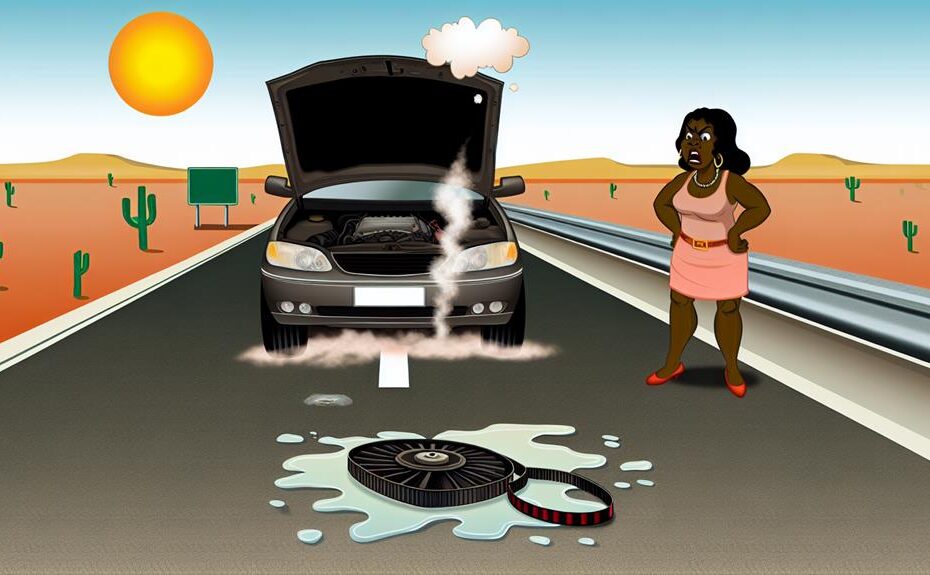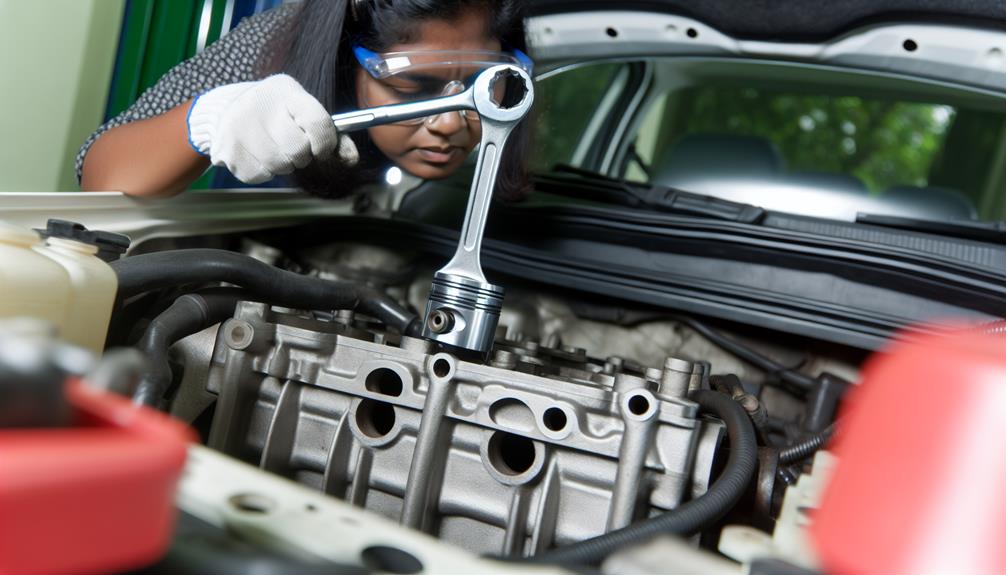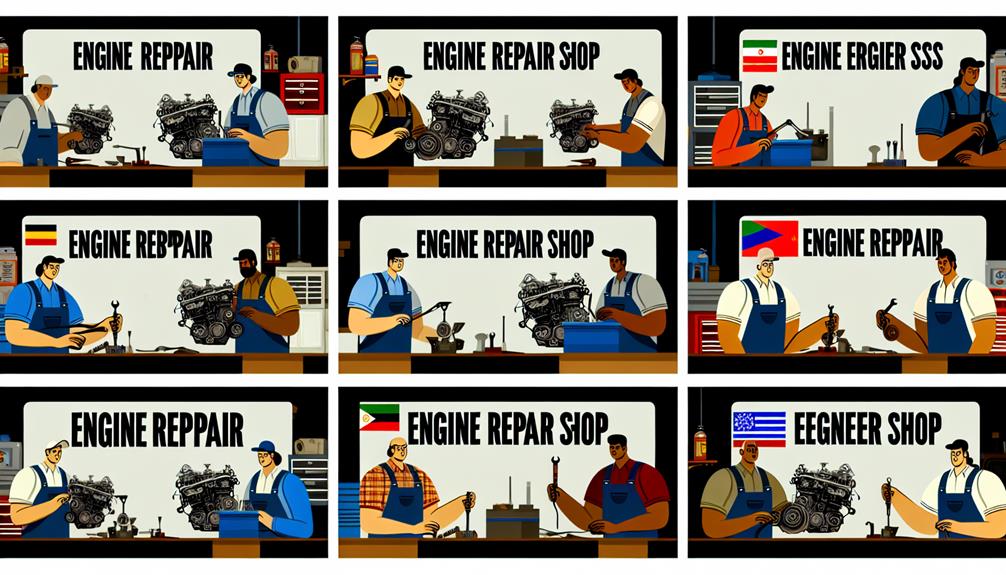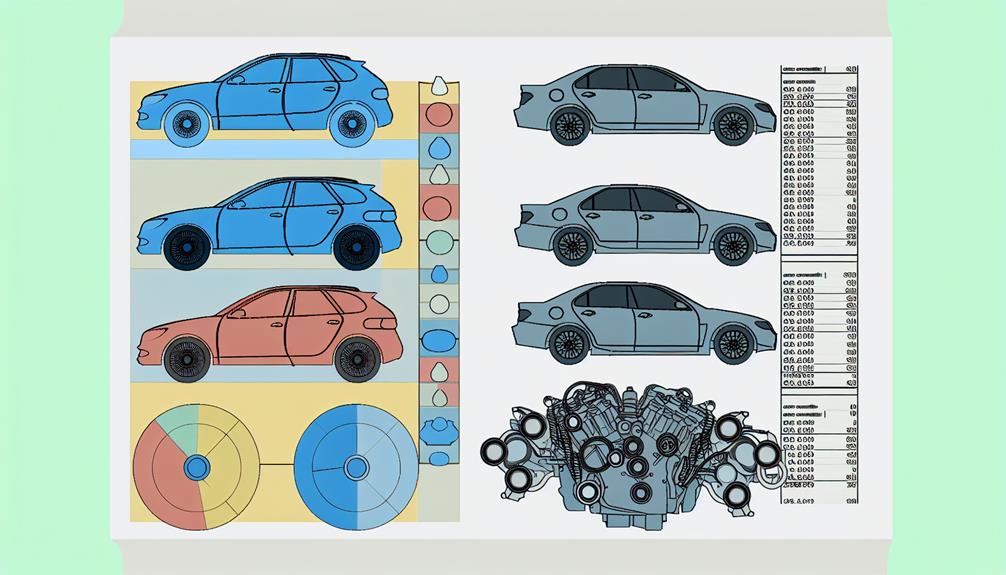Have you ever experienced the heart-stopping moment when your car engine fails? It's a nightmare scenario that no one wants to face, but unfortunately, it can happen.
However, fear not, as there are certain indications that can give you a heads-up before disaster strikes. In this discussion, we will explore the three best indications of engine failure that you should never ignore.
These signs might just save you from a costly repair or, heaven forbid, getting stranded on the side of the road. So, buckle up and prepare to uncover the secrets that your engine might be hiding.
Key Takeaways
- Strange noises or sounds, such as hissing or bubbling, can indicate engine overheating and potential coolant leakage.
- Decreased performance, including reduced acceleration and sluggish response, may indicate issues like clogged fuel filters or malfunctioning fuel pumps.
- Warning lights and dashboard alerts are important indicators of potential engine failure, and should be addressed promptly to prevent further damage.
- Regular maintenance and prompt repairs are crucial for preventing costly repairs and ensuring the longevity of the engine.
Strange Noises or Sounds
If you hear strange noises or sounds coming from your engine, it could be an indication of potential failure. Engine noises can provide valuable insight into the health of your vehicle's power source.
One common indication is engine overheating. When the engine overheats, it can cause abnormal sounds such as hissing, bubbling, or even a boiling noise. These sounds are a result of coolant boiling and escaping from the engine, which can lead to serious damage if left unaddressed.
Another indication of engine failure is irregular vibrations. If you feel excessive shaking or vibrations while the engine is running, it could be a sign of a misfiring cylinder or a faulty engine mount. Ignoring these vibrations can lead to further damage, including damage to the engine block or other components.
Therefore, it's crucial to pay attention to any strange noises or sounds coming from your engine, as they can serve as warning signs of potential failure. Regular maintenance and prompt repairs can help prevent further damage and ensure the longevity of your engine.
Decreased Performance or Power Loss
When your engine experiences decreased performance or power loss, it's a clear indication of potential failure. This issue can manifest in various ways, including reduced acceleration, sluggish response, and overall poor engine output.
One of the primary causes of decreased performance is fuel efficiency problems. If your engine isn't receiving the proper amount of fuel or if the fuel isn't being delivered efficiently, it can result in a significant drop in power. This could be due to a clogged fuel filter, a malfunctioning fuel pump, or a faulty fuel injector.
Another factor that can contribute to reduced engine performance is engine overheating. When an engine becomes too hot, it can cause the components to expand and lose their efficiency, leading to power loss. Common causes of engine overheating include a malfunctioning cooling system, low coolant levels, or a malfunctioning thermostat.
If you notice any decrease in performance or power loss, it's crucial to address the issue promptly to prevent further damage and potential engine failure.
Warning Lights or Dashboard Alerts
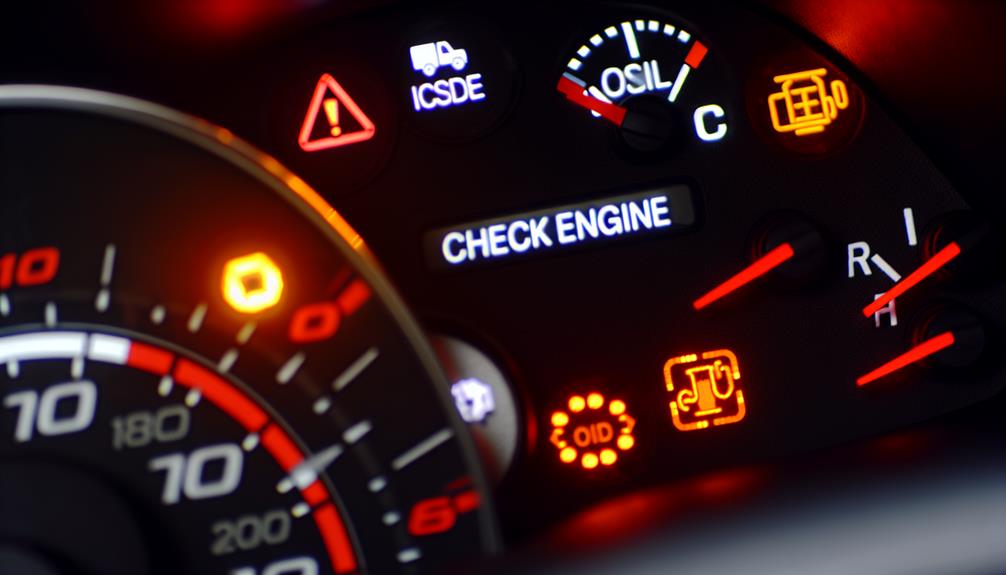
Warning lights or dashboard alerts are important indicators of potential engine failure. These lights and alerts are designed to warn you about specific issues with your engine, allowing you to take immediate action to prevent further damage. By understanding these warning signs and knowing how to interpret and respond to them, you can avoid costly repairs and ensure the longevity of your engine.
Here are some common causes of warning lights and dashboard alerts:
| Warning Light/Alert | Possible Cause |
|---|---|
| Check Engine Light | Faulty oxygen sensor, loose gas cap, or worn out spark plugs |
| Oil Pressure Light | Low oil level or oil pump failure |
| Battery Light | Faulty alternator or battery |
When a warning light or dashboard alert illuminates, it is important to address the issue promptly. Here's how to interpret and respond to these warning signs:
- Identify the warning light or alert and refer to your vehicle's manual for specific information.
- Check for any obvious issues, such as a loose gas cap or low oil level.
- If the problem persists, seek professional help to diagnose and repair the issue.
Frequently Asked Questions
How Often Should I Check the Oil Level in My Engine to Prevent Engine Failure?
You should check the oil level in your engine regularly to prevent engine failure. By maintaining proper oil levels, you ensure proper lubrication and prevent damage to engine components.
Are There Any Specific Maintenance Tasks I Can Perform to Prevent Engine Failure?
Performing regular preventive maintenance tasks can significantly reduce the risk of engine failure. By conducting routine inspections, checking fluid levels, and troubleshooting any issues promptly, you can ensure the longevity and reliability of your engine.
Can Extreme Weather Conditions Contribute to Engine Failure?
Extreme weather conditions can indeed contribute to engine failure. High altitudes can reduce engine performance, while low-quality fuel can lead to engine damage. It's crucial to consider these factors to ensure your engine's optimal functioning in extreme weather conditions.
Are There Any Warning Signs of Engine Failure That I Should Pay Attention to While Driving?
Pay attention to warning signs of engine failure while driving. Look out for unusual noises, smoke from the exhaust, loss of power, and engine overheating. Taking immediate action can prevent further damage and costly repairs.
What Are Some Common Causes of Engine Failure That Are Not Related to the Sections Mentioned in the Article?
Common misconceptions about engine failure can lead to a lack of awareness. It's important to know that engine design plays a crucial role in preventing failure. Stay informed and pay attention to signs of trouble.
Conclusion
In conclusion, recognizing the signs of engine failure is crucial for maintaining the performance and reliability of your vehicle.
Strange noises, decreased performance, and warning lights are the three best indications of engine failure.
Interestingly, a study conducted by the National Highway Traffic Safety Administration found that engine failure accounts for approximately 6% of all vehicle crashes, highlighting the importance of promptly addressing these warning signs to ensure safety on the road.
